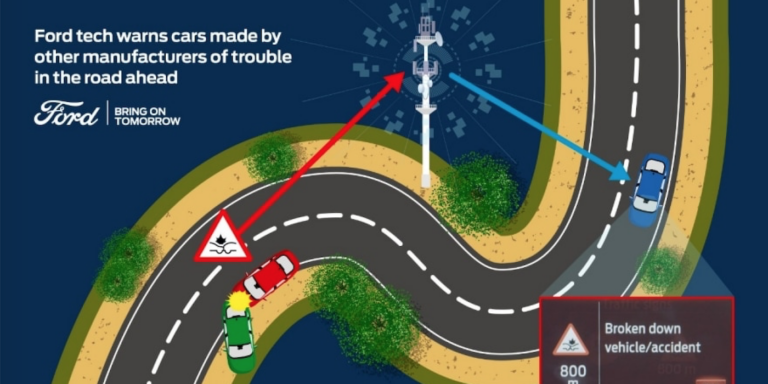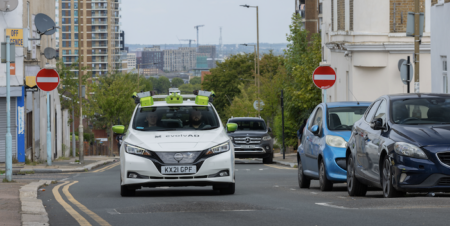Ford has developed technology designed to help provide drivers of connected vehicles – of potentially any OEM brand – with advance warning of potentially dangerous driving conditions on the road ahead.
Named Local Hazard Information, the system was introduced on the Ford Puma in early 2020, and with a new road safety data-sharing agreement in place, vehicles from other manufacturers will now be able to communicate with Ford vehicles to identify and share information about any road hazards they encounter, enabling more drivers to prepare for dangers ahead. The system is now being enabled on more new Ford models, including the all-new Escape.
“Connected vehicles help drivers to anticipate hazards that may be lurking just around the next bend,” expained Peter Geffers, manager of connected vehicles, Ford of Europe. “Road-safety data-sharing ecosystems are more effective the more vehicles and telematics sources they include; extending the benefits of this technology to those who do not drive Ford cars represents a significant step forwards.”
The agreement was led by the European Commission-backed Data for Road Safety partnership, and follows a 16-month proof of concept during which tens of millions of Safety‑Related Traffic Information (SRTI) messages – such as broken-down vehicles, slippery roads or reduced visibility – were exchanged between different vehicles. Initial partners working alongside Ford on the project include BMW, Mercedes-Benz and Volvo, with the data-sharing ecosystem now open to new participants.
How the Local Hazard Information system works
Anonymised data from the vehicle, such as the use of fog lights, emergency braking or airbag activation, is computed onboard to determine the presence and location of potential hazards. These warning messages are sent, using the FordPass Connect modem, to a secure Ford server, from where the data is distributed to SRTI partners who collate hazard messages from various sources and then share them with multiple vehicle brands.
Any relevant SRTI messages are immediately sent via cellular communications to vehicles in the vicinity of the potential hazard and appear on the dashboard displays. As well as warning other drivers, the information can be used to alert the relevant emergency services, providing accurate location data in seconds to help enable swift assistance.
“The Data for Road Safety ecosystem is a public-private partnership that delivers enriched data to improve road safety in a very tangible way, so it is a win-win situation for society as a whole,” said Joost Vantomme, chairman of the SRTI ecosystem. “The vehicle manufacturers participating in the project are willing to share data on a daily basis, and will continue their endeavours to contribute to the SRTI data ecosystem, together with all partners.”





